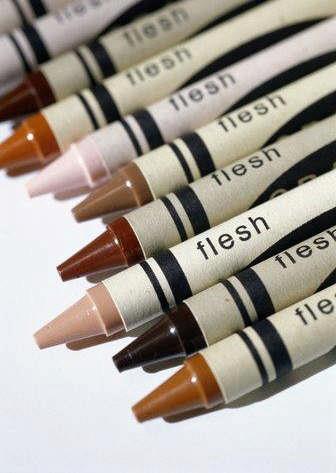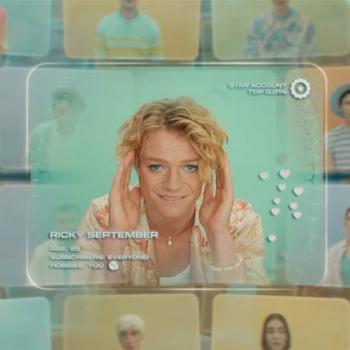The ways that people in the United States talk about race and skin color troubles me. I have long wanted to blog about this, and as I have thought about it time and time again, I kept returning in my mind to the cast of The Sarah Jane Adventures, a Doctor Who spin-off for younger viewers. Here is a photo of the main characters at one point:

If you look up information about the two actors on the left side of the photo, they are described as “British” or “English.”
How would they be described if they lived in the United States? As “Indian-American” and “African-American” perhaps? And the other two would simply be “American” in all probability?
Do you see the problem?
One of the great things about science fiction is the way it allows us to envisage society different from our current experience. In this case, it is not the difference between present and imagined future, but present in the United States and present in the U.K., that makes the point.
 If we are to make real progress in thinking differently about race in the United States, we absolutely have to find ways of talking about identity and skin color that do not treat “white” as though it were the default and thus not worth mentioning, and everything else as “black” or whatever. There are a range of shades of skin color.
If we are to make real progress in thinking differently about race in the United States, we absolutely have to find ways of talking about identity and skin color that do not treat “white” as though it were the default and thus not worth mentioning, and everything else as “black” or whatever. There are a range of shades of skin color.
Would talking about skin tones as “dark chocolate,” “milk chocolate,” “caramel” and “vanilla” be an improvement, I wonder? Are there other ways that we can get to the point of acknowledging that all skin has color, and there are a wide variety of shades, and no one of them is the human default or the American default?
While some of us may happily self-identify with some particular heritage connected with another part of the world, or even have dual citizenship, we do not single people out as “European-American” simply because of their skin color.
I have no problem with anyone self-identifying in any way they choose. But given how common it is for people in the United States – and indeed anywhere in the world – to have mixed ancestry, isn’t it time to stop pigeonholing people on the basis of skin color?
Isn’t it time that everyone in the United States, regardless of skin color, was simply considered “American,” and all our different shades of skin color, like hair and eye color, were equally mentioned, so that none is viewed as the default? Can you imagine if blond hair was just “hair” and anyone with some other shade was said to have “black” hair, no matter whether it was brown or black or somewhere in between – and in some places discriminated against because of it? Why do we continue to accept a similar practice regarding skin color? And what terminology should we adopt to get beyond it?












